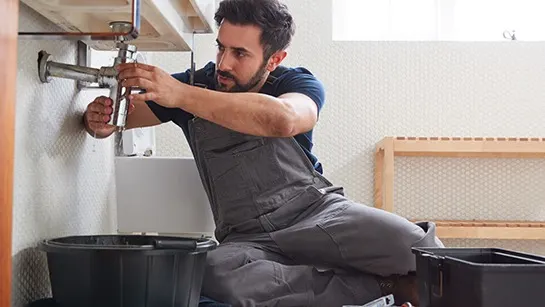Home repair contractors

If you own your home, you may want to do some repairs or renovations. Before you hire someone, understand your legal rights and steps you can take to prevent problems.
What you should know
If you hire a contractor to do improvements on your home, under the Builders Lien Act, you must hold back 10% of each payment to the contractor for a period of time. This is your protection against claims by subcontractors or suppliers who may not have received their share of the payments you made to the contractor. If you hold back 10%, you won’t have to pay any more than that to subcontractors and suppliers.
The holdback can be paid out 55 days after the work has been substantially (or mostly) done. This is the time period during which someone can file a builders lien for money they are owed for work or materials supplied on the project.
For more on how this builders lien holdback works, see our information on builders liens.
If your contractor tries to charge much more than they estimated the work would cost, they may be guilty of a deceptive practice under the Business Practices and Consumer Protection Act. It is deceptive for a business to provide an estimate that is materially less than the final price they charge — unless you agree to the higher price before the work is done. If this happens, see our information on if you're not happy with a service. That said, if you keep changing your mind about what you want done or what materials you want, you should expect to pay more than the original estimate.
Once repair or renovation work has started, if you don’t like what’s being done, say so right away. The best way to solve a problem is to talk it over with the contractor first — it could be a simple misunderstanding.
The next step is to put your complaint in writing to the contractor. If the work still isn’t satisfactory, you may have to end the contract and order the contractor off the job. If you can’t solve the problem by negotiations, you might have to sue. For what’s involved in suing, see our information on starting a lawsuit.
Prevent problems
Before you start a home improvement project, check with your city or town hall to see if you need a building permit. If you plan to do major work, you may want to hire an architect to supervise the contractor’s work and materials. Any work requiring a permit must be inspected by the city when the project is finished, so be sure you understand what standards of construction and safety you must meet.
If you live in a condominium, also check the bylaws of the strata corporation to find out if your project is allowed, whether you need the strata corporation’s approval, and if there are any restrictions.
Get more than one estimate, and get them in writing. Most contractors will give a free estimate. You should ask for the estimate to set out clearly the work to be done and the cost of materials and labour, so you know what you’re getting for the money. Remember the 5% GST (goods and services tax) and 7% provincial sales tax. Make sure the contractor includes these taxes in the price.
Cost estimates from potential contractors are one factor in choosing a contractor. But that’s not all you should consider. Don’t automatically choose the lowest estimate — make sure you get the workmanship and quality of materials you want.
Ask friends if they can recommend a good contractor. Ask contractors for the names and phone numbers of people they’ve worked for — and check them out.
The Better Business Bureau can tell you if there have been any complaints about a contractor. See their website. Also, some trades must be licensed or certified by provincial or municipal authorities; others have voluntary organizations that set standards. Search online to find the appropriate authority or organization to verify the status of the contractor you’re considering. You should also ask the contractor to give you the names of any sub-trades they may use on your project — plumbers, electricians, and others — and check them out too. Online searches will often show user reviews of contractors, which may be helpful.
Once you choose a contractor, put your agreement in writing. Don’t rely only on a verbal agreement and a handshake. A verbal contract is legal, but it’s hard to prove exactly what you both agreed to. A written contract will help you sort out any misunderstandings.
If your contractor makes a promise or a guarantee, include it in your written contract. The law implies certain terms that aren’t written — for example, that the work will be done in a proper and workmanlike manner, and that the materials used will be of reasonable quality. But in every case, your best protection is a clear written contract.
One of the terms in your contract will be the contract price and how you are going to pay it. Unless the job is small, you will likely want a definite price based on a written estimate, rather than an hourly rate that may add up to far more than you want to pay.
Also, don’t make a large deposit or pay a lot in advance. You don’t want to end up paying more than the value of the work and materials you receive. Instead, it’s a good idea to pay in installments, as the work progresses. The contract should say you will make installment payments, and when you will make them.
As for materials and supplies, remember to put in your contract that you’ll pay only for materials used, not for all materials bought — in case the contractor buys too much. The contractor should also agree to give you receipts for all materials bought. And you should verify them.
Be sure to clearly express any deadlines your contractor must meet and what happens if they’re not met.
To protect yourself in case someone gets hurt while working on the project, the contract should say that the contractor:
is bonded and insured to indemnify (pay) you if you are liable for a worker getting hurt on your property
is registered with Work Safe BC for workers’ compensation
has all required permits and licences (for example, electricians must have a licence to work in BC)
You should also ensure your home insurance covers any damage claims by the contractor.
This information from People’s Law School explains in a general way the law that applies in British Columbia, Canada. The information is not intended as legal advice. See our disclaimer.
Related
On Dial-A-Law
Dial-A-Law has more information on Living in your home in the section on Home & neighbours.

